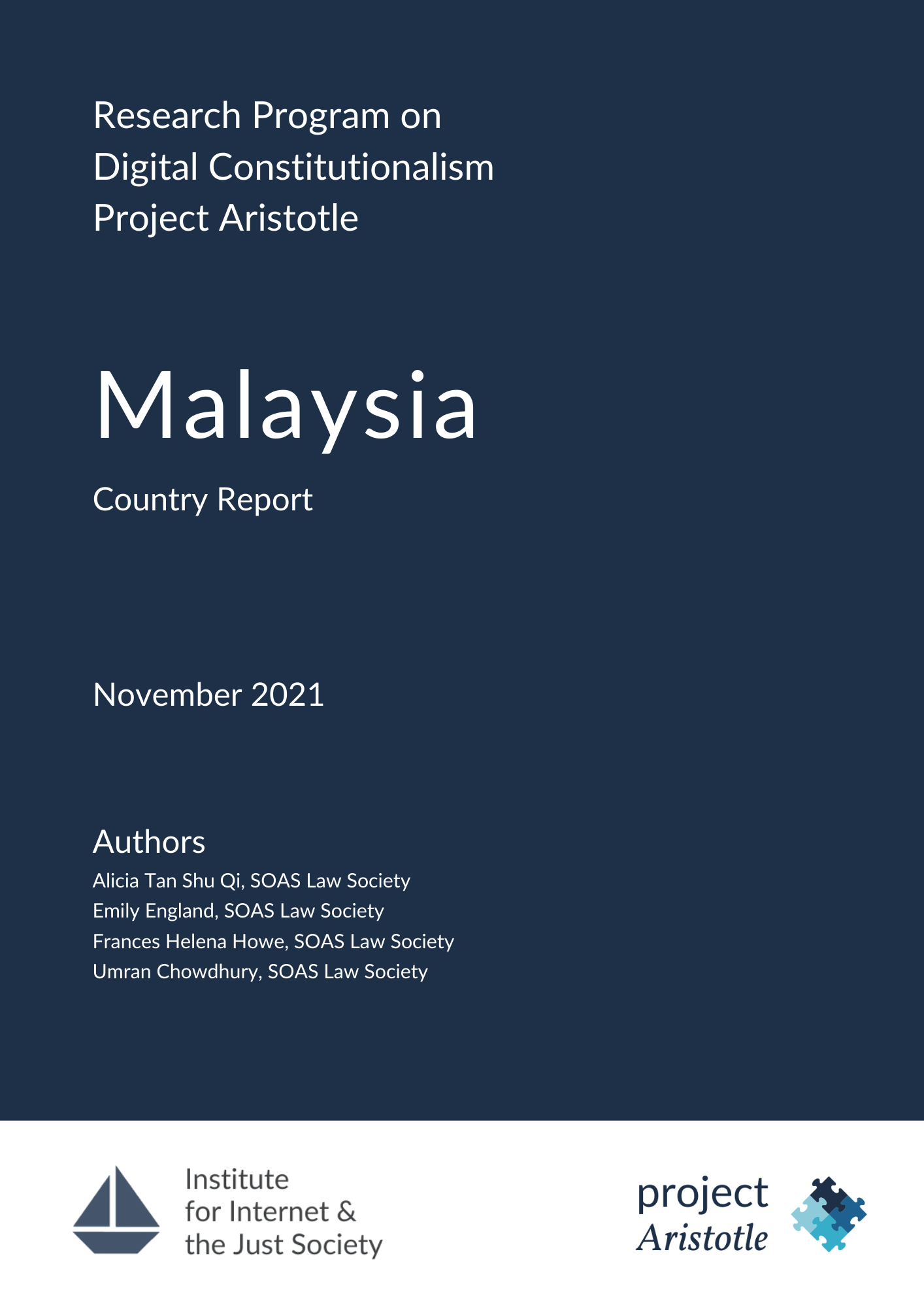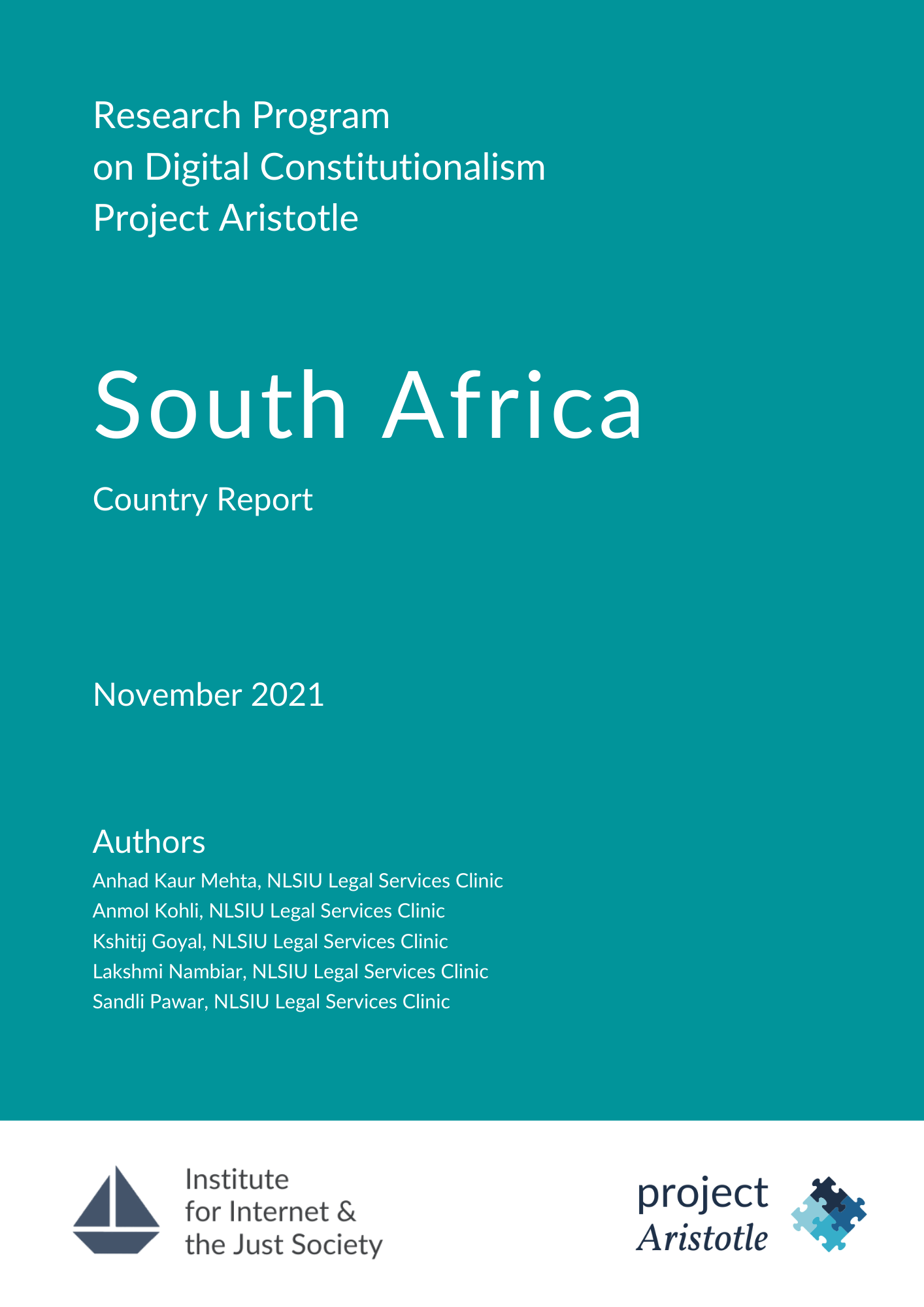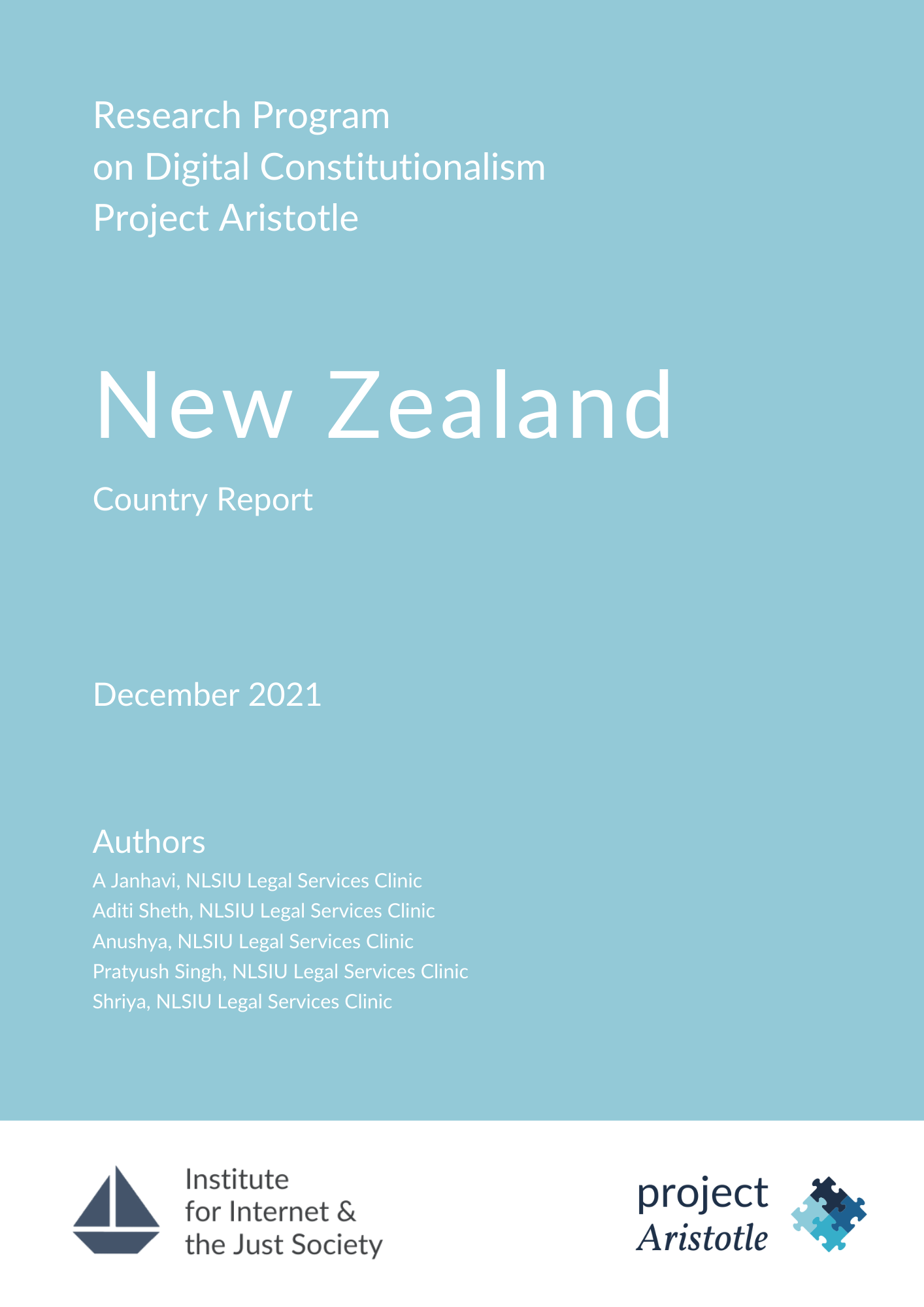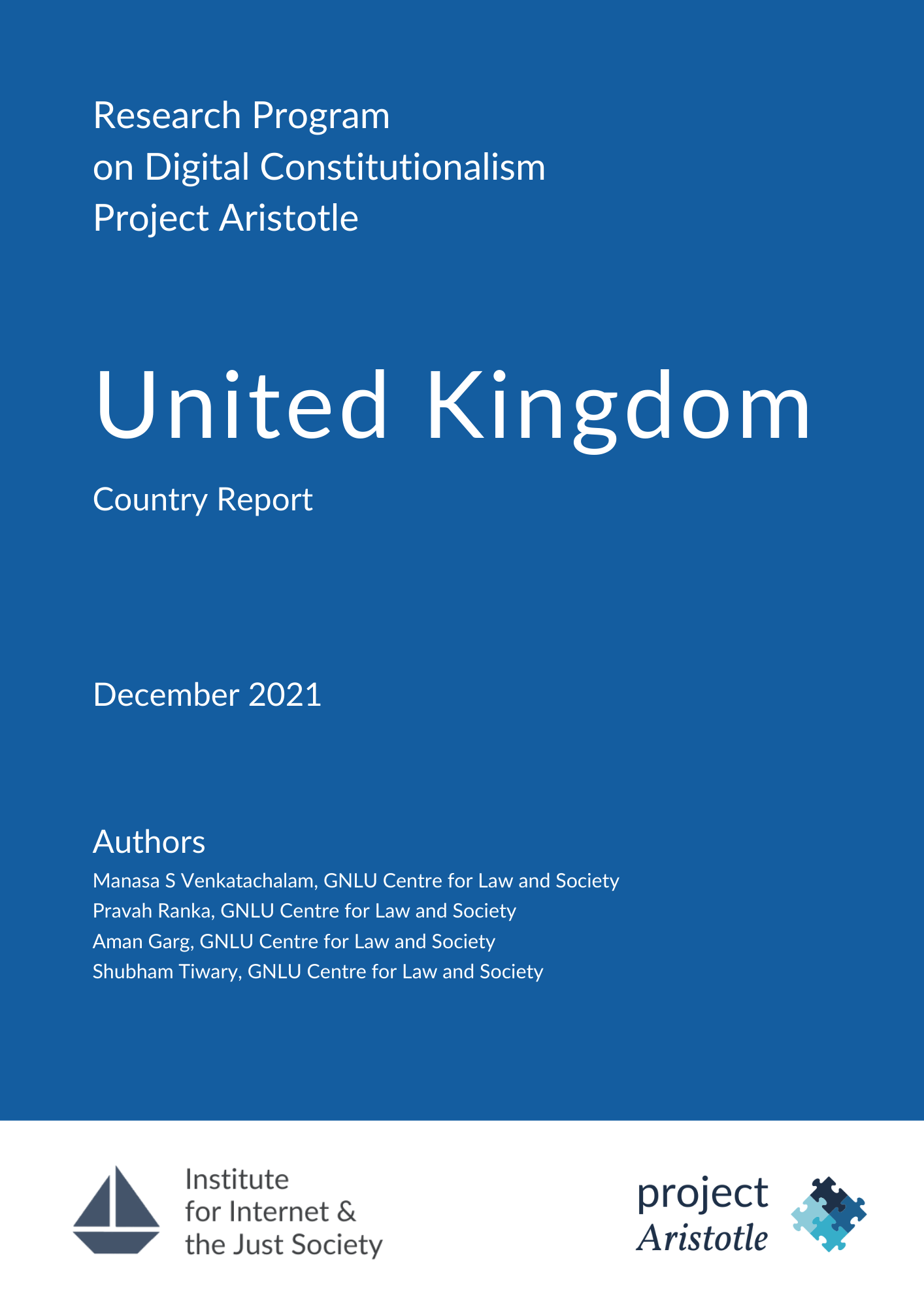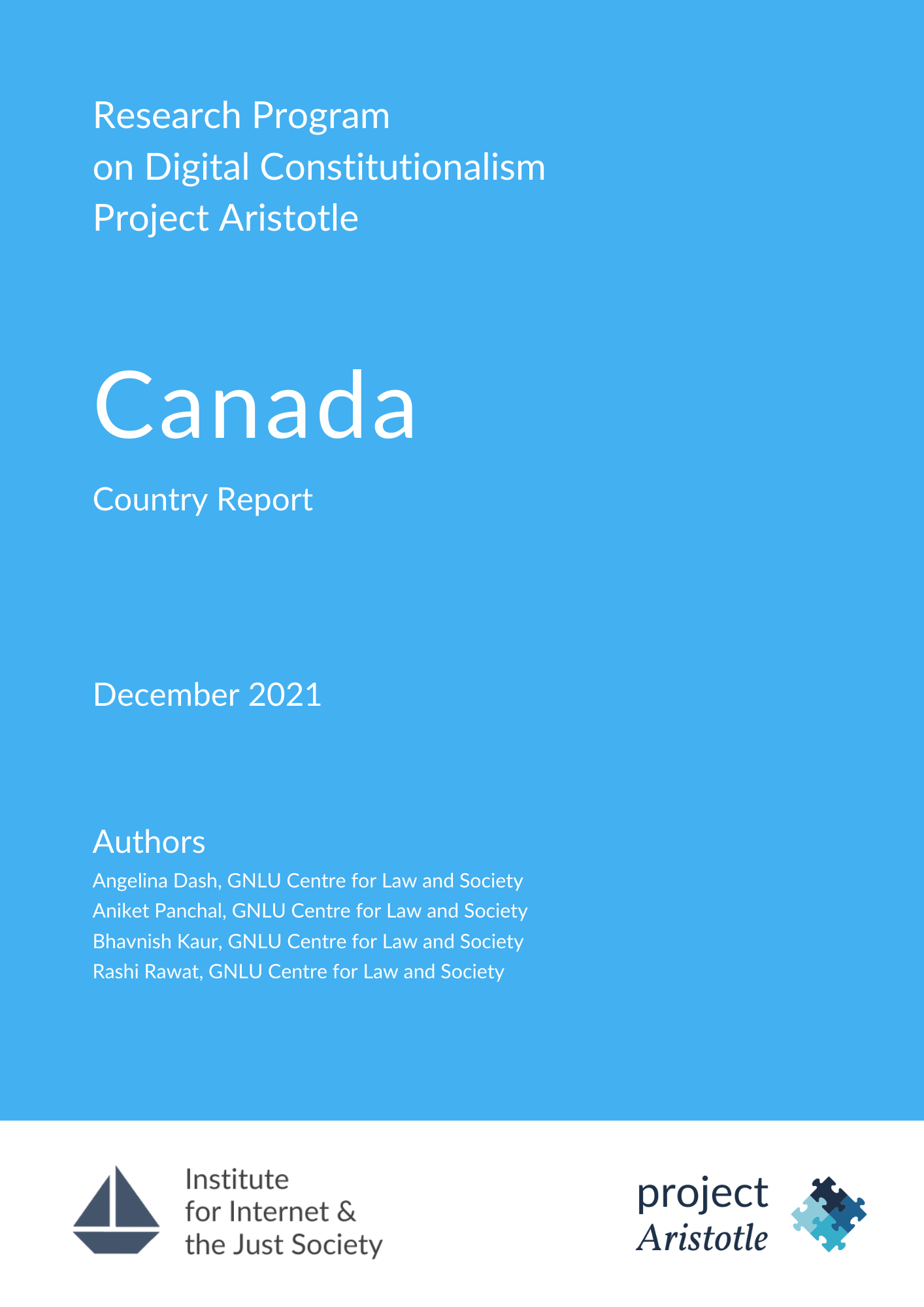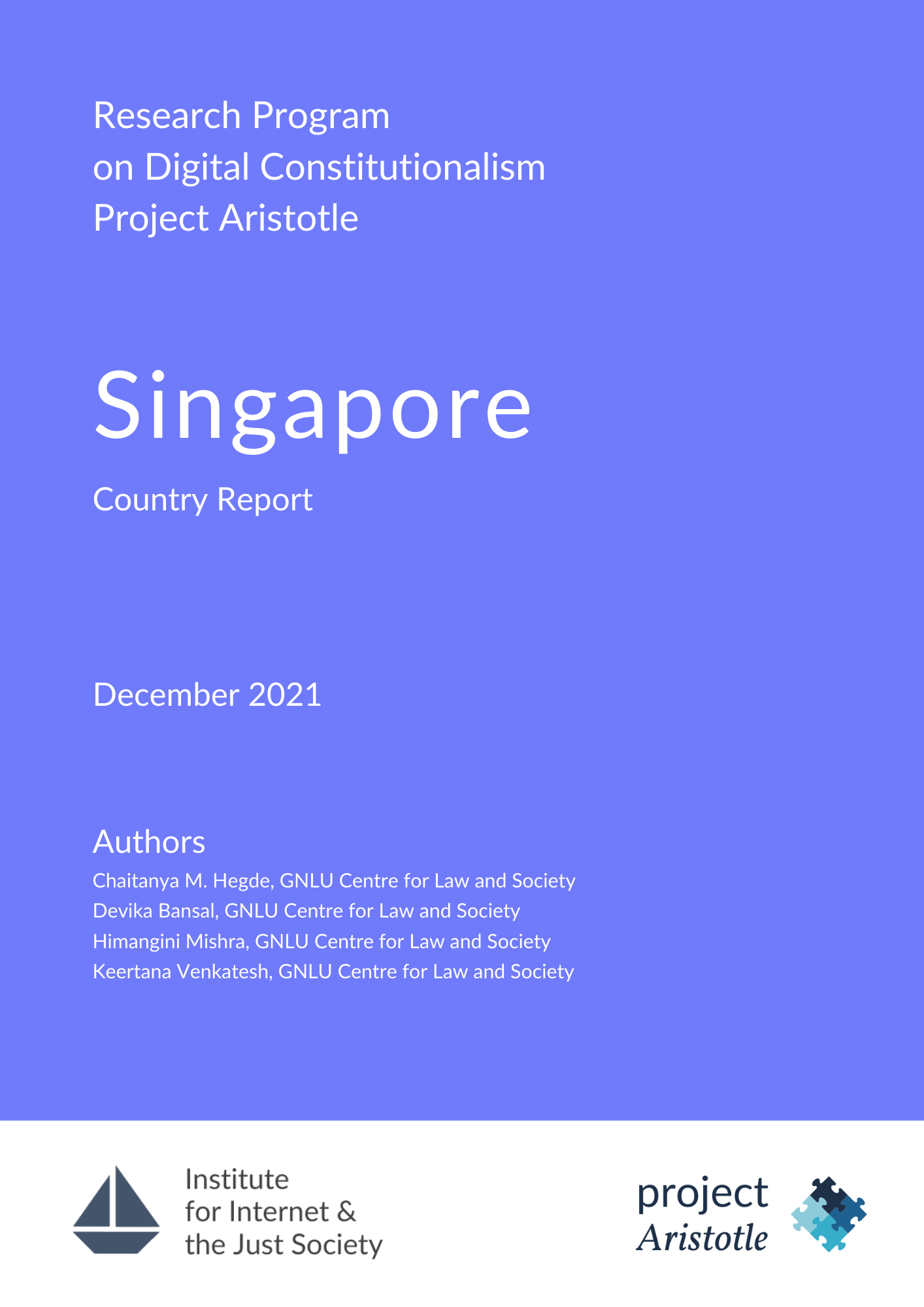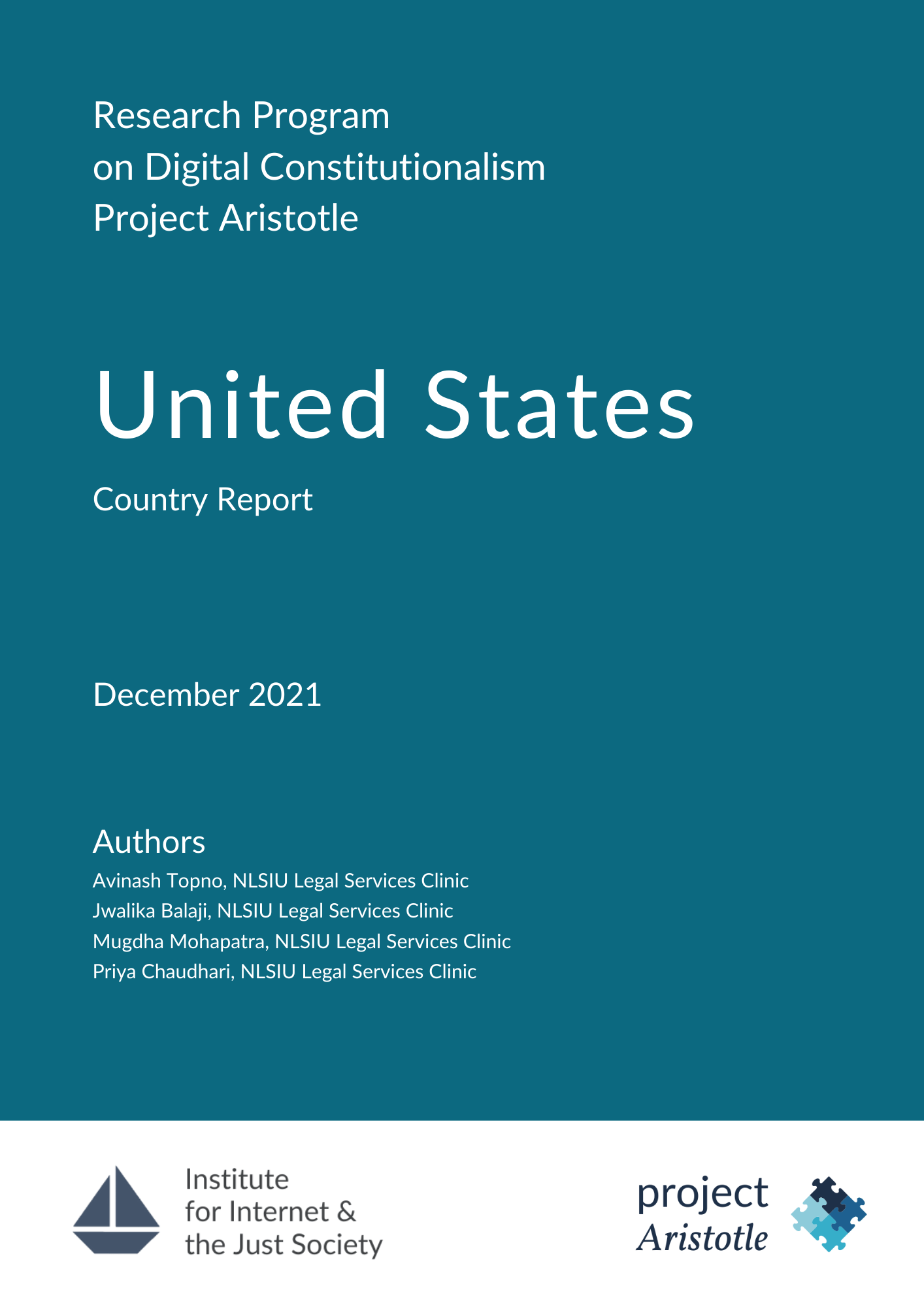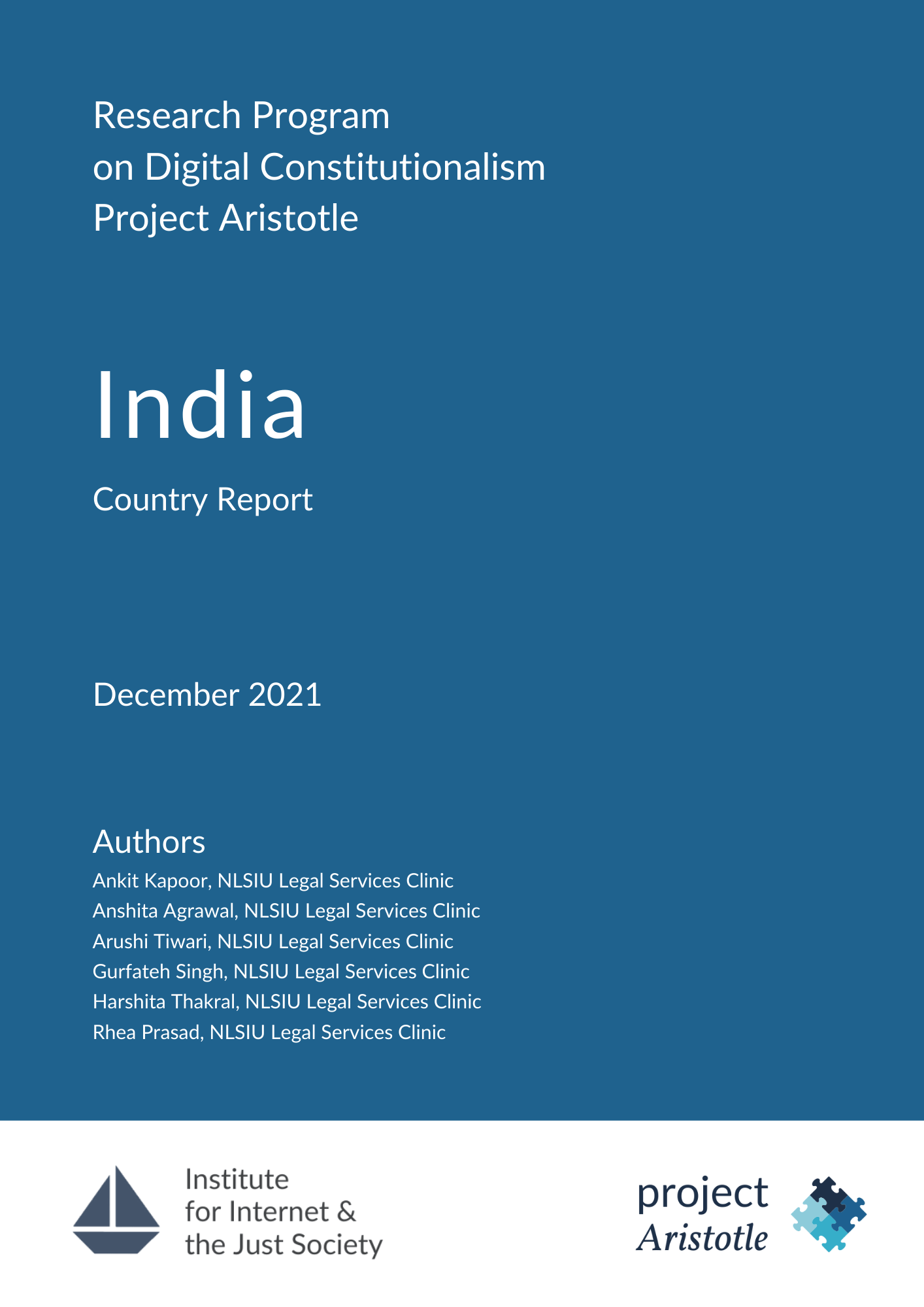A Project on Digital Governance
Project Aristotle is the flagship project of the Digital Constitutionalism cycle of the Institute for Internet and the Just Society. Project Aristotle publishes a research guide on what a structure of governance for the digital realm can look like when it is informed by interdisciplinary country-specific legal and policy research and analysis. We believe that delving deep into these bodies of knowledge, as shaped by a people within a particular national context, has much to offer in response to the pressing questions posed by the digital ecosystem.
If code functions as law, then we are creating the most significant new jurisdiction since the Louisiana Purchase, yet we are building it just outside the Constitution's review.
Fabio-Sascha Gaul
Private online platforms are attempting to answer one of the most difficult questions invoked by the lived reality of individuals within modern society, that of balancing the competing concerns of its populace in a manner which is fair, inclusive, transparent, and accountable. Yet, the answers produced thus far are a distant reality from the expectations attached to this new frontier, from the hope for the digital world to not replicate the disparities of our physical world.
The manner of governing these platforms needs to be rethought in a manner which truly imbibes as well as showcases, “an eye for the public consequences of different choices, an ear for the different voices including the ones that often go unheard, a recognition that there is no neutral position as every arrangement carries with it an implicit idea of sociality, democracy, and fairness, and a deliberate commitment to scientifically testing these arrangements and pursuing through this process” (Gillespie). This is why a research guide on what a structure of governance for the digital realm can look like, will be a helpful tool in order to fulfill this goal.
What is ?
platform governance
A concept intended to capture the layers of governance relationships structuring interactions between key parties in today’s platform society, including platform companies, users, advertisers, governments, and other political actors
Ali Samil Temel
Interdisciplinary country-specific research
By delving into the country-specific regulations on the digital sphere, Project Aristotle aims to analyse and find the ‘best practices’ from various jurisdictions as well as compare the outcomes and effects these laws and policies have had in practice. This will be a new way to approach the question on what a structure of governance for the digital realm can look like.
Solitudinem
Contabilidade
Russ Ian Salas
Our Work


Join Us Aboard
Mark Arrow


